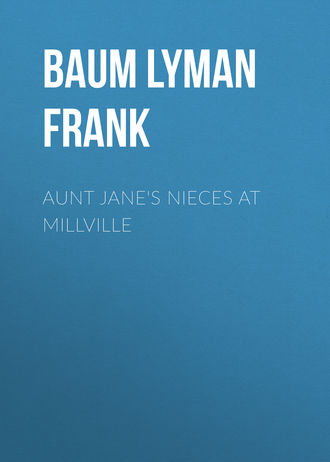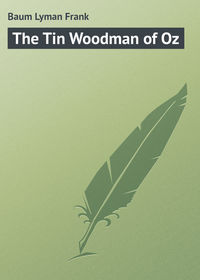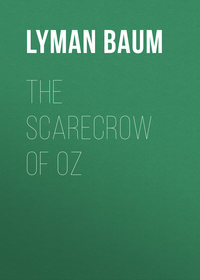 полная версия
полная версияAunt Jane's Nieces at Millville
"Oh, yes; o' course. Ye see, I sold you a dozen first, of the dollar kind. Then I thought as how, bein' fine young birds, you'd be tempted fer to eat 'em, an' a dozen don't go fur on the table. So I up an' sold ye another dozen, extry ol' stock an' remarkable high-bred, fer a dollar-an'-a-half each. Which is dirt cheap because they's too old to eat an' jest right fer layers."
"Are they here?"
"Every one of 'em."
"Very good. I'm glad to have them. The cow seems reasonably priced, for a Jersey."
"It is. Jest extror'nary!" exclaimed Peggy, reassured.
"And your people have all done work of an unusual character in a painstaking manner. I am very much pleased. There seems to be a hundred and forty dollars my due, remaining from the five hundred I sent you."
"Here it is, sir," responded McNutt, taking the money from his pocket-book. In another place he had more money, which he had intended to pay if the smaller bill had been presented.
Uncle John took the money.
"You are an honest fellow, McNutt," said he. "I hadn't expected a dollar back, for folks usually take advantage of a stranger if he gives them half a chance. So I thank you for your honesty as well as for your services. Good morning."
The agent was thoroughly ashamed of himself. To be "sech a duffer" as to return that money, when by means of a little strategy he might have kept it, made him feel both humiliated and indignant. A hundred and forty dollars; When would he have a chance to get such a windfall again? Pah! he was a fool – to copy his identical thoughts: "a gol dum blithering idjit!"
All the way home he reflected dismally upon his lack of business foresight, and strove to plan ways to get money "out'n thet easy mark."
"Didn't the man rob you, Uncle?" asked Louise, when the agent had disappeared.
"Yes, dear; but I wouldn't give him the satisfaction of knowing I realized it."
"That was what I thought. By the way, that Wegg history seems both romantic and unusual," she said, musingly. "Don't you scent some mystery in what the man said of it?"
"Mystery!" cried Uncle John. "Lordy, no, Louise. You've been readin' too many novels. Romances don't grow in parts like these."
"But I think this is where they are most likely to grow, Uncle," persisted the girl, "just consider. A retired sea captain hides inland, with no companions but a grinning sailor and his blind housekeeper – except his pale wife, of course; and she is described as sad and unhappy. Who was she, do you think?"
"I don't think," said Uncle John, smiling and patting the fair check of his niece. "And it don't matter who she was."
"I'm sure it does. It is the key to the whole mystery. Even her baby could not cheer the poor thing's broken heart. Even the fine house the Captain built failed to interest her. She pined away and died, and – "
"And that finished the romance, Louise."
"Oh, no; that added to its interest. The boy grew up in this dismal place and brooded on his mother's wrongs. His stern, sulky old father died suddenly. Was he murdered?" in a low voice; "did the son revenge his mother's wrongs?"
"Figglepiff, Louise! You're getting theatric – and so early in the morning, too! Want to saddle my new farm with a murder, do you? Well, it's rubbish. Joe Wegg ran away from here to get busy in the world. Major Doyle helped him with my money, in exchange for this farm, which the boy was sensible to get rid of – although I'm glad it's now mine. The Major liked Joe Wegg, and says he's a clean-cut, fine young feller. He's an inventor, too, even if an unlucky one, and I've no doubt he'll make his way in the world and become a good citizen."
With these words Uncle John arose and sauntered around to the barn, to look at the litter of new pigs that just then served to interest and amuse him. The girl remained seated upon the grass, her hands clasped over her knee and a look of deep retrospection upon her face.
CHAPTER VII.
LOUISE SCENTS A MYSTERY
Louise Merrick was the eldest of Uncle John's nieces, having just passed her eighteenth birthday. In the city she was devoted to the requirements of fashionable society and – urged thereto by her worldly-minded mother – led a mere butterfly existence. Her two cousins frankly agreed that Louise was shallow, insincere and inclined to be affected; but of the three girls she displayed the most equable and pleasant disposition and under the most trying circumstances was composed and charming in manner. For this reason she was an agreeable companion, and men usually admired her graceful figure and her piquant, pretty face with its crown of fluffy blonde hair and winning expression. There was a rumor that she was engaged to be married to Arthur Weldon, a young man of position in the city; but Uncle John ignored the possibility of losing one of his cherished nieces and declared that Louise was still too young to think of marriage.
When away from her frivolous mother and the inconsequent home environments the girl was more unaffected and natural in her ways, and her faults were doubtless more the result of education than of natural tendency.
One thing was indisputable, however: Louise Merrick was a clever girl, possessing a quick intellect and a keen insight into the character of others. Her apparent shallowness was a blind of the same character as her assumed graciousness, and while she would have been more lovable without any pretence or sham she could not have been Louise Merrick and allow others to read her as she actually was. Patsy and Beth thought they knew her, and admired or liked rather than loved their cousin. Uncle John thought he knew her, too, and was very proud of his eldest niece in spite of some discovered qualities that were not wholly admirable.
An extensive course of light literature, not void of "detective stories," had at this moment primed Louise with its influence to the extent of inducing her to scent a mystery in the history of Captain Wegg. The plain folks around Millville might speculate listlessly upon the "queer doin's" at the farm, and never get anywhere near the truth. Indeed, the strange occurrences she had just heard were nearly forgotten in the community, and soon would be forgotten altogether – unless the quick ear of a young girl had caught the clue so long ignored.
At first she scarcely appreciated the importance of the undertaking. It occurred to her that an effort to read to the bottom of the sea captain's romance would be a charming diversion while she resided at Millville, and in undertaking the task she laughingly accused herself of becoming an amateur detective – an occupation that promised to be thrilling and delightful.
Warned, however, by the rebuff she had met with from Uncle John, the girl decided not to confide either her suspicions or her proposed investigation to anyone for the present, but to keep her own counsel until she could surprise them all with the denouement or required assistance to complete her work.
Inspired by the cleverness and fascination of this idea, Louise set to work to tabulate the information she had received thus far, noting the; element of mystery each fact evolved. First, Captain Wegg must have been a rich man in order to build this house, maintain two servants and live for years in comfort without any income from his barren farm lands. What became of his money after his death? Why was his only son obliged to fly to the cities in order to obtain a livelihood? Secondly, the Captain, a surly and silent man, had brought hither – perhaps by force – a young woman as his wife who was so unhappy that she pined away and died. Who was this woman? What had rendered her so unhappy and despairing?
Thirdly, the Captain's only friend had been a crazy man named Will Thompson. Was he crazy before the Captain's death, or had he become crazed at that time, some terrible tragedy unhinging his mind?
Fourthly, the granddaughter of Thompson, Ethel, and the son of Captain Wegg had been in love with each other, and people expected they would marry in time. But at his father's sudden death the boy fled and left his sweetheart without a word. Why – unless something had occurred that rendered their marriage impossible?
In the fifth place there was Old Hucks and his blind wife to be considered. What did they know about their old master's secret history? What tragic memories lurked beneath the man's perpetual smile and the woman's composed and sightless face?
Surely there was enough here to excite the curiosity and warrant an effort to untangle the mystery. And as instruments to the end there were several people available who could be of use to her; McNutt, the agent, who evidently knew more than he had cared to tell; Old Hucks and his wife and Ethel Thompson, the school-teacher. There might be others, but one or another of these four must know the truth, and it would be her pleasant duty to obtain a full disclosure. So she was anxious to begin her investigations at once.
When her uncle returned from his visit to the pigs Louise said to him:
"I've been thinking, dear, that we ought to call upon that young lady who arranged our rooms, and thank her for her kindness."
"That's true," he replied.
"Can't we drive over to Thompson's this morning, Uncle?"
"Beth and Patsy have planned a tramp to the lake, and a row after water-lilies."
"Then let us make our call together. We can invite the girl to come here and spend a day with us, when Patsy and Beth will be able to meet her."
"That's a good idea, Louise. I was wondering what I'd do this morning.
Tell Old Hucks to get the nag harnessed."
The girl ran eagerly upon her errand. Old Hucks seemed surprised, and a curious expression showed for an instant through his smile. But he turned without a word to harness the horse.
Louise stood watching him.
"Your fingers are quite nimble, Thomas, considering the fact that you were once a sailor," she said.
"But sailors have to be nimble, miss," he returned, buckling a strap unmoved. "Who tol' ye I were once a sea-farin' man?"
"I guessed it."
As he appeared indisposed to say more on the subject she asked: "Did you sail with Captain Wegg?"
"Partly, miss. Dan's already now. Don't jerk the bit, fer his mouth's tender an' it makes him balky. Ef he balks jest let him rest a time, an' then speak to him. Dan ain't vicious; he's jest ornery."
She climbed into the dilapidated old buggy and took the reins. Dan groaned and ambled slowly around to where Uncle John stood awaiting his niece.
"Let me drive, Uncle," she said; "I understand Dan."
"Well, I don't," returned Uncle John, in his whimsical way, as he mounted to the seat beside her. "I don't understand how he's happened to live since the landing of Columbus, or what he's good for, or why someone don't knock him on the head."
Dan turned his long, lean face as if to give the speaker a reproachful look; then he groaned again, leaned forward, and drew the buggy slowly into the stony lane.
"Do you know where the Thompsons live?" inquired Uncle John.
"No. Whoa, Dan!"
That was the best thing the nag did. He knew how to whoa.
"Thomas!" called Uncle John, turning in his seat; and at the summons Old
Hucks came from the barn and approached them. "How do you get to Miss
Thompson's place?"
"Miss Ethel's?" Another fleeting expression of surprise.
"Yes; we're going over to thank her for her kindness to us."
"I – I'm 'most sure as she'll be here soon to call, sir. And – perhaps you oughtn't to – to go to – Thompson's," stammered Hucks, glancing up at them with his bright, elusive smile.
"Well, we're going, anyhow," growled Mr. Merrick.
"Then turn left at the main road an' keep straight ahead to Thompson's.
Ye can't miss it, sir. Brick schoolhouse on the other corner."
"Thank you, Thomas. Drive on, Louise."
CHAPTER VIII.
THE LITTLE SCHOOL-MA'AM
Dan balked only twice on the journey, but even this moderate rebellion so annoyed Uncle John that he declared he would walk back rather than ride behind this "mulish antiquity" again.
When they came to the Thompson dwelling it at first sight seemed deserted. A knock on the front door failed to produce any response.
"Perhaps they're away from home," suggested Louise.
"There's a path around to the back," said Uncle John. "Let's explore in that direction."
They made their way leisurely toward the rear and had almost passed the house, when a deep roar broke the stillness. It was succeeded by another, and another, like the bellowing of a mad bull, and the intruders stopped short and Louise clung to her uncle in sudden panic.
"Be still, Will! Stop, I say – stop!"
A sharp crack, as of a lash, accompanied the words, and a moan or two was followed by absolute silence.
Uncle John and Louise looked at one another with startled eyes.
"He must be worse," said the old gentleman, mopping his forehead with a handkerchief.
With one accord they started softly to retrace their steps when a new sound halted them again. It was a clear, fresh young voice singing a plaintive ditty in a nonchalant, careless tone.
"That's Ethel, I'm sure," exclaimed Louise, grasping her uncle's arm.
"Well, what shall we do?" he demanded.
"Mr. – the crazy man seems quiet now," she whispered. "Let us find the girl, if we can."
So again they traversed the path and this time came to the pretty garden behind the house. Ethel was tending a flower bed. She wore her gingham dress and a sunbonnet, and, kneeling in the path, stretched out her slim brown arm to uproot the weeds. But the crunching of the gravel aroused her attention, and, observing her visitors, she sprang up and hastened toward them.
Louise introduced her uncle and herself in her most pleasant and gracious way, and the school teacher led them to a garden bench and begged them to be seated.
"The day is lovely," she said, "and I always find my garden more cheerful than the house. Grandfather's illness makes the house unpleasant for strangers, too."
Louise was surprised at this frank reference, and Uncle John coughed to hide his embarrassment.
"I – I hope the invalid is – is improving," he said, doubtful whether he should say anything on the delicate subject or not.
"He is always the same, sir," was the quiet response. "I suppose they have told you that grandfather is a madman? Our great trouble is well known in this neighborhood."
"He is not dangerous. I suppose?" hazarded Uncle John, remembering the brutal bellowing.
"Oh, not at all. He is fully paralyzed from his waist down, poor grandfather, and can do no harm to anyone. But often his outbreaks are unpleasant to listen to," continued the girl, deprecatingly, as if suddenly conscious that they had overheard the recent uproar.
"Has he been – this way – for long?" inquired Louise.
"His mind has been erratic and unbalanced since I can remember,"
answered Ethel, calmly, "but he first became violent at the time Captain
Wegg died, some three years ago. Grandfather was very fond of the
Captain, and happened to be with him at the time of his sudden death.
The shock drove him mad."
"Was he paralyzed before that time?" asked Louise, earnestly.
"No; but the paralysis followed almost immediately. The doctor says that a blood vessel which burst in the brain is responsible for both afflictions."
The pause that followed was growing awkward when Uncle John said, with an evident effort to change the subject:
"This is a fine old homestead."
"It is, indeed," responded Ethel, brightly, "and it enjoys the distinction of being one of the first houses built in the foothills. My great-grandfather was really the first settler in these parts and originally located his cabin where the mill now stands. 'Little Bill Thompson,' he was called, for he was a small, wiry man – very different from grandfather, who in his prime was a powerful man of over six feet. Little Bill Hill and Little Bill Creek were named after this pioneer great-grandsire, who was quite successful raising flocks of sheep on the plateau. Before he died he built this house, preferring the location to his first one."
"The garden is beautiful," said Louise, enthusiastically. "And do you teach in the little brick school-house across the way?"
"Yes. Grandfather built it years ago, without dreaming I would ever teach there. Now the county supports the school and pays me my salary."
"How long have you taught?"
"For two years. It is necessary, now that grandfather is disabled. He has a small income remaining, however, and with what I earn we get along very nicely."
"It was very good of you to assist in getting our house ready for us," said Louise. "We might have found things in sorry condition but for your kindness."
"Oh, I enjoyed the work, I assure you," replied Ethel. "As it is my vacation, it was a real pleasure to me to have something to do. But I fear my arrangement of your pretty furniture was very ungraceful."
"We haven't altered a single thing," declared Louise. "You must have found it a tedious task, unpacking and getting everything in shape."
"Tom and Nora were good help, because they are fond of me and seem to understand my wishes; and Peggy McNutt brought me some men to do the lifting and rough work," explained Ethel.
"Have you known Hucks and his wife long?" asked Uncle John.
"Since I can remember, sir. They came here many years ago, with Captain
Wegg."
"And has Thomas always smiled?" Louise inquired.
"Always," was the laughing reply. "It's an odd expression – isn't it? – to dwell forever on a man's face. But Tom is never angry, or hurt or excited by anything, so there is no reason he should not smile. At the time of Captain Wegg's death and poor grandfather's terrible affliction, Old Hucks kept right on smiling, the same as ever; and perhaps his pleasant face helped to cheer us all."
Louise drew a long breath.
"Then the smile is a mask," she said, "and is assumed to conceal the man's real feelings."
"I do not think so," Ethel answered, thoughtfully. "The smile is habitual, and dominates any other expression his features might be capable of; but that it is assumed I do not believe. Thomas is a simple-minded, honest-hearted old fellow, and to face the world smilingly is a part of his religion. I am sure he has nothing to conceal, and his devotion to his blind wife is very beautiful."
"But Nora – how long has she been blind?"
"Perhaps all her life; I cannot tell how long. Yet it is wonderful how perfectly she finds her way without the aid of sight. Captain Wegg used to say she was the best housekeeper he ever knew."
"Did not his wife keep house for him, when she was alive?"
"I do not remember her."
"They say she was most unhappy."
Ethel dropped her eyes and did not reply.
"How about Cap'n Wegg?" asked Uncle John. "Did you like him? You see, we're mighty curious about the family, because we've acquired their old home, and are bound to be interested in the people that used to live there."
"That is natural," remarked the little school teacher, with a sigh. "Captain Wegg was always kind to me; but the neighbors as a rule thought him moody and bad-tempered." After a pause she added: "He was not as kind to his son as to me. But I think his life was an unhappy one, and we have no right to reprove his memory too severely for his faults."
"What made him unhappy?" asked Louise, quickly.
Ethel smiled into her eager face.
"No one has solved that problem, they say. The Captain was as silent as he was morose."
The detective instinct was alive in Louise. She hazarded a startling query:
"Who killed Captain Wegg?" she demanded, suddenly.
Another smile preceded the reply.
"A dreadful foe called heart disease. But come; let me show you my garden. There are no such roses as these for miles around."
Louise was confident she had made progress. Ethel had admitted several things that lent countenance to the suspicions already aroused; but perhaps this simple country girl had never imagined the tragedy that had been enacted at her very door.
She cordially urged Ethel Thompson to spend a day with them at the farm, and Uncle John, who was pleased with the modesty and frankness of the fair-haired little school teacher, earnestly seconded the invitation.
Then he thought of going home, and the thought reminded him of Dan.
"Do you know," he inquired, "where I could buy a decent horse?"
The girl looked thoughtful a moment; then glanced up with a bright smile.
"Will you buy one off me?" she asked.
"Willingly, my dear, if you've an animal to sell."
"It's – it's our Joe. He was grandfather's favorite colt when his trouble came upon him. We have no use for him now, for I always ride or drive my pony. And grandmother says he's eating his head off to no purpose; so we'd like to sell him. If you will come to the barn I'll introduce you to him."
Joe proved on inspection to be an excellent horse, if appearances were to be trusted, and Ethel assured Mr. Merrick that the steed was both gentle and intelligent.
"Do you use that surrey?" inquired Uncle John, pointing to a neat vehicle that seemed to be nearly new.
"Very seldom, sir. Grandmother would like to sell it with the horse."
"It's exactly what I need," declared Mr. Merrick. "How much for Joe and his harness, and the surrey?"
"I'll go and ask what grandmother wants."
She returned after a few minutes, stating a figure that made Uncle John lift his brows with a comical expression.
"A hundred dollars! Do you take me for a brigand, little girl? I know what horses are worth, for I've bought plenty of 'em. Your Joe seems sound as a dollar, and he's just in his prime. A hundred and fifty is dirt cheap for him, and the surrey will be worth at least seventy-five. Put in the harness at twenty-five, and I'll give you two-fifty for the outfit, and not a cent more or less. Eh?"
"No, indeed," said Ethel. "We could not get more than a hundred dollars from anyone else around here."
"Because your neighbors are countrymen, and can't afford a proper investment. So when they buy at all they only give about half what a thing is actually worth. But I'll be honest with you. The price I offer is a good deal less than I'd have to pay in the city – Hutchinson would charge me five hundred, at least – and I need just what you've got to sell. What do you say, Miss Ethel?"
"The price is one hundred dollars, Mr. Merrick."
"I won't pay it. Let me talk with your grandmother."
"She does not see anyone, sir."
Louise looked up sharply, scenting another clue.
"Isn't she well, dear?" she asked in smooth tones.
"She looks after grandfather, and helps Aunt Lucy with the housework."
"Well, come, Louise; we'll go home," said Uncle John, sadly. "I'd hoped to be able to drive this fine fellow back, but Dan'll have to groan an' balk all the way to the farm."
Ethel smiled.
"Better buy at my price, Mr. Merrick," she suggested.
"Tell you what I'll do," he said, pausing. "I'll split the difference.
Take two hundred and well call it a bargain."
"But I cannot do that, sir."
"It will help pay you for the hard work of fixing up the house," he rejoined, pleadingly. "Your bill wasn't half enough."
"My bill?" wonderingly.
"The one I paid McNutt for your services."
"I made no charge, sir. I could not accept anything for a bit of assistance to a neighbor."
"Oh! Then McNutt got it, did he?"
"I'm awfully sorry, Mr. Merrick. I told Peggy I would not accept payment."
"H-m. Never mind. We're not going to quarrel, little neighbor. May I hitch Joe to the surrey?"
"If you like. I'll help you."
Uncle John led Joe from his stall and together they harnessed the horse to the surrey. The girl knew better than the man how to buckle the straps properly, while Louise stood by helplessly and watched the performance.
Then Uncle John went for old Dan, whom he led, rickety buggy and all, into the Thompson stable.
"I'll send Hucks over to get him, although we might as well knock him in the head," he said as he unharnessed the ancient steed. "Now then, Louise, hop in."
"You'll be sure to come over Thursday, for the day, Miss Thompson?" asked Louise, taking Joe's reins from her uncle's hands.









